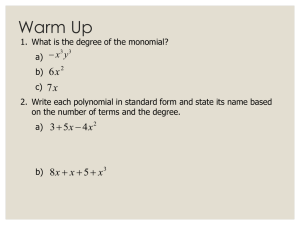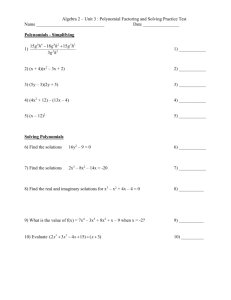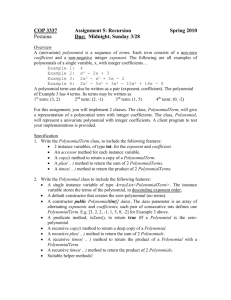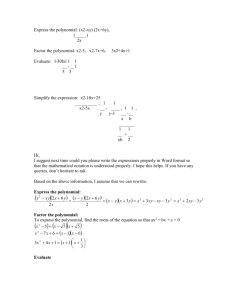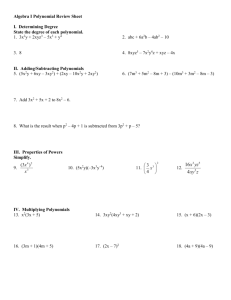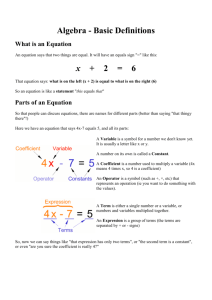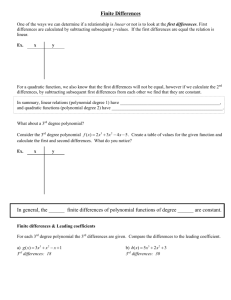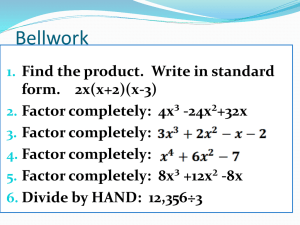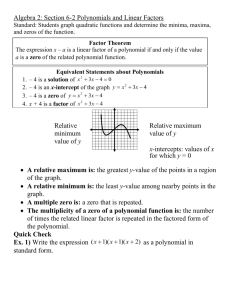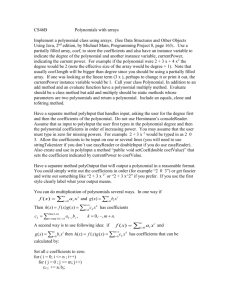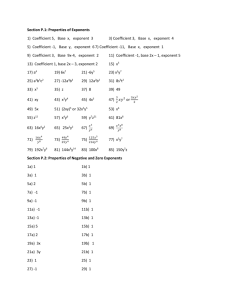Polynomial
advertisement
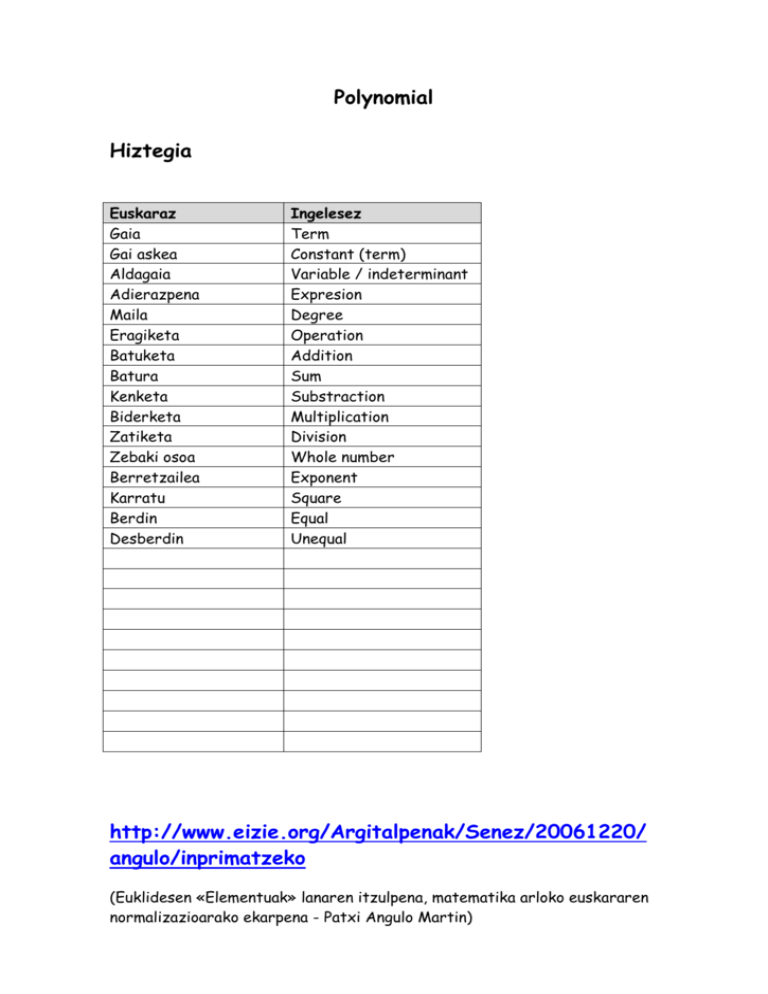
Polynomial Hiztegia Euskaraz Gaia Gai askea Aldagaia Adierazpena Maila Eragiketa Batuketa Batura Kenketa Biderketa Zatiketa Zebaki osoa Berretzailea Karratu Berdin Desberdin Ingelesez Term Constant (term) Variable / indeterminant Expresion Degree Operation Addition Sum Substraction Multiplication Division Whole number Exponent Square Equal Unequal http://www.eizie.org/Argitalpenak/Senez/20061220/ angulo/inprimatzeko (Euklidesen «Elementuak» lanaren itzulpena, matematika arloko euskararen normalizazioarako ekarpena - Patxi Angulo Martin) Polynomial From Wikipedia, the free encyclopedia In mathematics, a polynomial (from Greek poly, "many" and medieval Latin binomium, "binomial"[1] [2] [3]) is an expression of finite length constructed from variables (also known as indeterminates) and constants, using only the operations of addition, subtraction, multiplication, and non-negative integer exponents. For example, x2 − 4x + 7 is a polynomial, but x2 − 4/x + 7x3/2 is not, because its second term involves division by the variable x (4/x) and because its third term contains an exponent that is not a whole number (3/2). A polynomial is either zero, or can be written as the sum of one or more non-zero terms. The number of terms is finite. These terms consist of a constant (called the coefficient of the term) which may be multiplied by a finite number of variables (usually represented by letters). Each variable may have an exponent that is a non-negative integer, i.e., a natural number. The exponent on a variable in a term is called the degree of that variable in that term, the degree of the term is the sum of the degrees of the variables in that term, and the degree of a polynomial is the largest degree of any one term. Since x = x1, the degree of a variable without a written exponent is one. A term with no variables is called a constant term, or just a constant. The degree of a constant term is 0. The coefficient of a term may be any number from a specified set. If that set is the set of real numbers, we speak of "polynomials over the reals". Other common kinds of polynomials are polynomials with integer coefficients, polynomials with complex coefficients, and polynomials with coefficients that are integers modulo of some prime number p. In most of the examples in this section, the coefficients are integers. For example: 5x 2 y is a term. The coefficient is –5, the variables are x and y, the degree of x is two, and the degree of y is one. The degree of the entire term is the sum of the degrees of each variable in it, so in this example the degree is 2 + 1 = 3. A polynomial is a sum of terms. For example, the following is a polynomial: 3x 2 5 x 4 It consists of three terms: the first is degree two, the second is degree one, and the third is degree zero. In polynomials in one variable, the terms are usually ordered according to degree, either in "descending powers of x", with the term of largest degree first, or in "ascending powers of x". The polynomial in the example above is written in descending powers of x. The first term has coefficient 3, variable x, and exponent 2. In the second term, the coefficient is –5. The third term is a constant. Since the degree of a non-zero polynomial is the largest degree of any one term, this polynomial has degree two.
